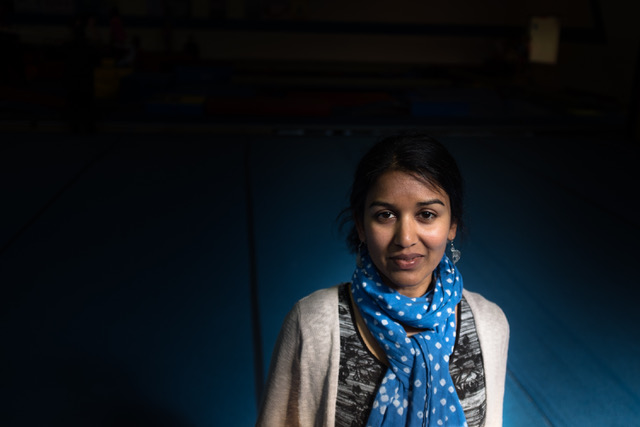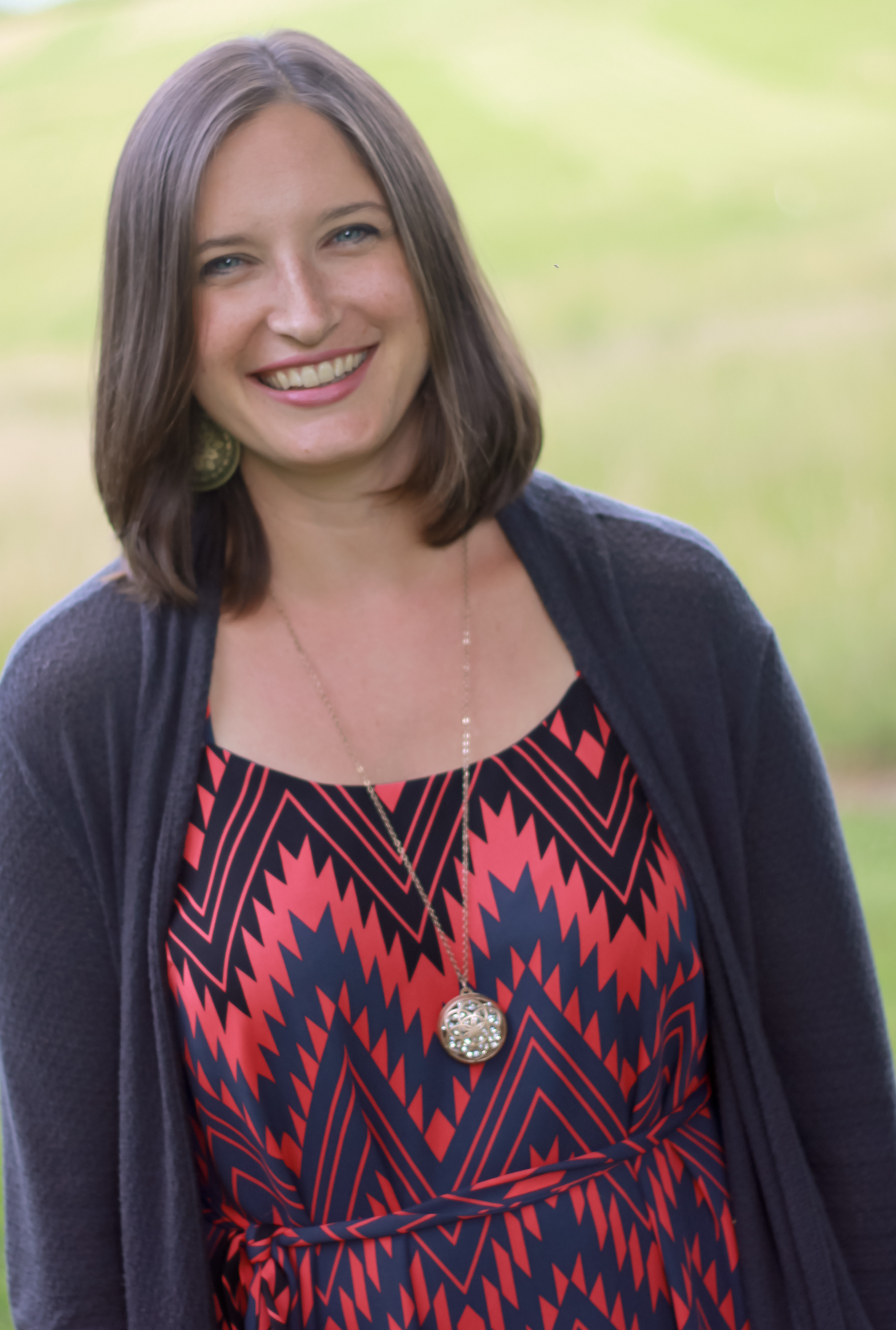By Sarah Arthur
He looks, at first glance, like any ordinary white college student. Backpack slung over one shoulder, hipster-esque brown hair, slight build, hesitant demeanor. I only notice him in the crowd at Chicago’s Union Station because he’s now approached three people in the waiting area, voice too low to hear. All I see are their quick headshakes, the clipped “no’s” on lips, the averted glances. He nods respectfully after each encounter, then shuffles away in a new loop around the building.
I’m here on business, four hours from home. I’ve missed my connection to the western suburbs; I’m frantically rifling through a folder, trying to find contact info for the publisher I’m supposed to meet in one hour. I’ve crammed my phone in the crook of my shoulder and my various bags under my arms and legs, and I’m about as convincingly unapproachable as a traveling professional can be. But I know he’s coming my way. Before I actually see him again, I sense the advance of the child of some brokenhearted woman in Wilmette or Elmhurst or Wheaton, and I steel myself for what I have to say. This week, it will be the millionth time I’ve told a child “no.”
Sarah Arthur
A child. Some mother’s son. And he must sense that I’m some son’s mother because he angles cautiously into my line of sight.
“I’m sorry to bother you,” he says in the quiet rasp of a ruined voice, “but I accidentally left my wallet on the bus and I need money for a train ticket home.”
Up close I can see the dirt, the split upper lip, the unsteady vision. God, he can’t be more than eighteen. My kindergartner in, oh, twelve years. What kind of hell did he sleep in last night? What kind of hell did his mother sleep in?
I know from experience how this conversation goes. I will say, “I’m happy to buy you a ticket, but I can’t give you money.” And he’ll say some variation on, “I won’t catch a train right away, so really, a couple dollars for a sandwich while I wait…” And then I’ll say, firmly, “I have a granola bar and a cheese stick right here.” But by then the game will be up.
I suddenly miss my two little boys with an ache like mild electrocution. I look him in the eyes. I want him to see that I see him. I want him to know that he is known—if not by me, then by a God who, like a mother, knows us. All our desires, longings, addictions, agonies…all of it.
I decide to short-circuit the script. “I’m sorry, honey,” I say, as if one of my sons has just asked for candy that will ruin his teeth; “I can’t do that.” Instead I want to throw my body between him and the train that is barreling through his system, the addiction that likely will end his life. I want to ask, “Does your mother know where you are?” I want to flag down a nurse, drive him to the hospital, hold vigil by the driplines and the blinking monitors, my life on pause till he takes an honest breath again. Everything his mother probably wants to do but can’t, because, at the end of all things, we don’t get to save our children. We don’t get to save anyone.
~
If I’ve learned nothing else in the past fifteen years of inviting the homeless to live with my family, it’s that we’re not here to fix the world. It’s tempting to believe otherwise, especially for someone steeped in an evangelical milieu that began at Christian summer camps and concerts, continued through a flagship Christian college in the Chicago suburbs, and drifted, rather unremarkably, by slow oxbows, back to my mainline roots in Michigan. Evangelicals are the great hope of the world, we’re told. We have the Good News. We’re here to change your life. No, wait, sorry: we get ourselves confused with Jesus all the time.
I wasn’t raised liberal or conservative, theologically speaking. I was raised in a kind of “generous orthodoxy,” to quote author Brian McLaren (who was paraphrasing theologian Hans Frei). We adhered to the ancient Christian creeds—with high views of Jesus, the Bible, and the Church—but we didn’t turn a deaf ear to other ways of being Christian, or religious, or even spiritual. Who were we to foreclose on how God chooses to engage the world? We were otherwise socially conservative—with the exception of a strange discontent in my bones about justice. Something bigger than personal sin was at stake in the problems I kept seeing in the world. Entire systems were egregiously stacked against the most vulnerable. Systemic sin. Sin that’s greater than the sum of its individual parts.
In college, this discontent took the form of weekly ministry to children in the projects on Chicago’s south side and spending a semester feeding and playing with hungry kids in the slums of Nairobi, Kenya. I met my future husband through an inner-city ministry, both of us recognizing: here was someone whose understanding of sin was both personal and communal. We sin. Not just me. Not just you. Us, together. And the solution is more involved than simply laying all those personal sins at the foot of the Cross (pardon the Christianese) and moving on, knowing you’ve been forgiven. It’s a group project, requiring actual strategies for systemic change: in churches, in agencies, in programs and policies. And in homes.
At its core, how we learn to engage the world starts with the nuclear family and its posture toward those outside. Somehow, even as newlyweds, my husband and I understood this. Shortly after we moved into our first house in a small Michigan town, we invited a man from the local homeless shelter—where my husband volunteered monthly—to live with us. Because somewhere in our Bible training, Jesus’ parable of the sheep and the goats in Matthew 25 sounded like a blueprint for setting up a house, setting up a life. “Whatever you’ve done for the least of these [the stranger, the hungry, thirsty, sick, imprisoned], you’ve done for me,” Jesus tells his followers. Feed the hungry, and you’re feeding Jesus. Our main guy.
So, we invited Jesus to live with us. We asked a stranger to join our household, to eat at our table, to become family. And it didn’t take long before I realized this wasn’t a program or policy or plan. This was a person. He had his quirks; he could be a pain in the ass. But so could I. And if we were going to survive, we needed to learn to mutually respect each other without the ever-evasive goal of trying to fix another human being. Because you can’t.
Anyone who has ever opened his or her home to struggling strangers knows this: you’re not just opening your home. You’re binding yourself to those on the fringes of society in ways that continue long after the last plate is loaded in the dishwasher. You may be waving goodbye as the van of dinner guests from the local homeless shelter backs out of the driveway, but it doesn’t end there. If you count these people as friends, not just guests, it never ends there.
~
I first met Jill (not her real name) when she and several other homeless women from the downtown mission joined our church in Lansing, Michigan, for worship one Sunday morning. On the way to my suburban parsonage for lunch (my husband is a pastor now; we were appointed by the bishop to live here), Jill chattered with delight. Her Long Island accent rose in childlike excitement that changed to astonishment as we turned into my subdivision. “Oh, my Gawd,” she gasped. “Oh. My. Gawd. Is this for real? But the houses all look the same! It’s so creepy! It’s like a horror movie!” By the time we pulled into my driveway, I was crying with laughter. Apparently, through certain lenses, the American Dream can look like its own kind of nightmare.
We laughed during the meal. We passed the salt; we passed the tissues. If there’s anything I’ve learned from those on the fringes it’s to shed pretense and social niceties as quickly as possible. And there was just no pretending with Jill. “I don’t know that I believe in God today,” she said to me, gaze direct but watery, “but I think I might believe you when you talk about Jesus.” Well, then, let’s talk about Jesus. Drop the formalities. What else is worth talking about, really?
My path crossed with Jill’s on and off after that: occasionally she would come to church, or I’d run into her on the city bus, or she’d call asking for prayer in a simple, childlike, doubting kind of way. In time, she drifted out of orbit.
Then came the night one autumn that a colleague of mine and I were supposed to go out and celebrate our book contract. Both of us miraculously had arranged childcare. I had not only showered but was dressed up—because this mother of little kids was going somewhere fancy, dammit. Wiping baby slobber off my collar, I felt almost like a professional. But just as I picked up the keys and headed out the door, the house phone rang. It was Jill. She had moved into a new apartment. Her fiancé had just been arrested. She was hysterical. She wanted to die—in fact, she assured me repeatedly this would happen. Soon. Tonight.
I cradled the phone against my neck while frantically texting my husband on my mobile. Call 911 now—and included the address. And then I ran to the car.
It was a long half-hour winding through dark city streets, the beginning of flurries in the air. I was hoping for emergency lights to help me find the place, but her building was quiet. I buzzed her number, and there she was, wailing in the hallway at the sight of me. The police had come for a well-check and determined she was fine.
Do you know the smell of poverty? Of hopelessness? It hangs on you for days. When we ask to bear someone else’s burdens, that’s not one we ask for. But there it was: I still smelled it days later, hidden in the folds of my coat, the coat that rested on her chair for three hours while we talked about God and Jesus and suicide and her fiancé’s good heart and the fact that she could find no joy, no love, no feeling in the world.
“The only place I find peace,” she said at one point, “is at church.” “Of course,” I said, “because Jesus is there.” We agreed that Jesus was also here, in this barely-lived-in apartment with the boxes and the mess and the emptiness. We prayed. She promised not to harm herself; we both would call her case manager in the morning. It was enough to go on, for now.
I was bound to Jill just as God has bound God’s self to us by becoming human in Jesus. For life. Forever. I won’t fix her. But I can sit with her in the mess.
~
I watch him amble away, the boy in Union Station. That’s my son, I realize. That’s my first homeless guest, and Jill, and many subsequent others. I’m heartsick that what he needs in this moment is what I can’t give him: a fix, to be fixed, to save this situation, his life. I’m not enough.
Jesus, I think.
Jesus.
Sarah Arthur is the author, together with Erin Wasinger, of The Year of Small Things: Radical Faith for the Rest of Us (Brazos Press, 2017). She lives in Lansing, Michigan with her husband, Tom, pastor of Sycamore Creek Church, and their two little boys. www.saraharthur.com














